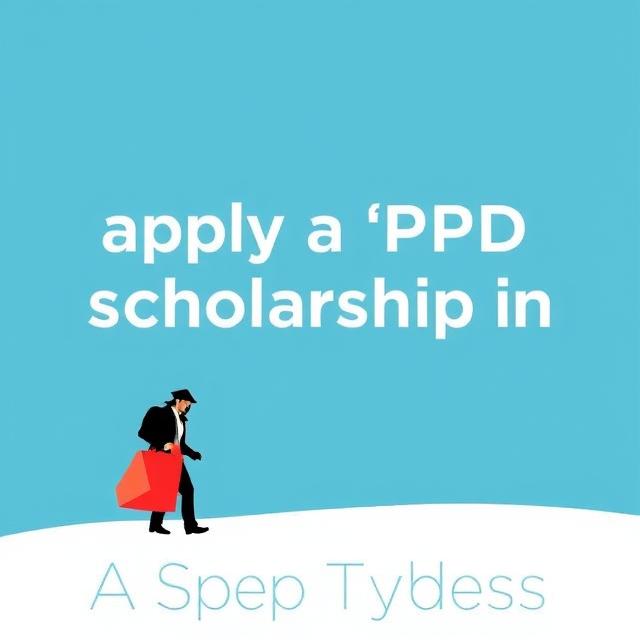Unlocking Opportunity: Applying for Canadian Scholarships for African Students in 2025
For ambitious African students dreaming of pursuing higher education on a global stage, Canada presents an enticing prospect. Known for its world-class universities, multicultural society, and welcoming immigration policies, Canada has become a highly sought-after destination for international students. However, the cost of tuition and living expenses can be a significant barrier. Fortunately, numerous scholarships and funding opportunities are available to help African students realize their academic aspirations in Canada. This comprehensive guide will navigate you through the landscape of Canadian scholarships for African students in 2025, equipping you with the knowledge and resources needed to craft a compelling application and maximize your chances of success.
Why Choose Canada for Your Studies?
Before diving into the intricacies of scholarships, let’s highlight some compelling reasons why Canada should be your top choice for higher education:
- World-Class Universities: Canadian universities consistently rank among the top globally, offering diverse programs across various disciplines.
- Affordable Education (Compared to the US & UK): While still a significant investment, tuition fees in Canada are often lower than in the United States and the United Kingdom.
- Multicultural and Welcoming Society: Canada embraces diversity, creating a vibrant and inclusive environment for international students.
- Strong Economy and Job Opportunities: A thriving economy provides ample opportunities for graduates to pursue successful careers.
- Pathway to Permanent Residency: Canada offers various pathways to permanent residency for international graduates who meet specific criteria.
- Quality of Life: Canada consistently ranks high in global quality of life indexes, offering a safe, clean, and stimulating environment.
Navigating the Scholarship Landscape: Key Categories and Resources
The scholarship landscape for international students, especially those from Africa, can seem daunting. Understanding the different types of scholarships and where to find them is crucial. Here’s a breakdown of key categories:
-
Government of Canada Scholarships:
-
Vanier Canada Graduate Scholarships: Prestigious scholarships for doctoral students pursuing research in health, natural sciences and/or engineering, social sciences and humanities. https://vanier.gc.ca/en/home-accueil.html – This highly competitive scholarship offers substantial funding for exceptional doctoral candidates.
-
IDRC Research Awards: The International Development Research Centre (IDRC) offers research awards for candidates from developing countries pursuing master’s or doctoral-level research focused on global development issues. https://www.idrc.ca/en – Ideal for students passionate about contributing to the development of their home countries.
-
Canadian Francophonie Scholarship Program (CFSP): This program supports students from developing countries of La Francophonie to pursue studies in Canada in French. https://www.boursesfrancophonie.ca/en/ – Offers a fantastic opportunity for Francophone African students.
-
-
University-Specific Scholarships:
Most Canadian universities offer a range of scholarships specifically for international students. These may be based on academic merit, financial need, or a combination of factors. It’s essential to explore the scholarship opportunities offered by the universities you are interested in. Here are a few examples:
-
University of Toronto Scholarships: The University of Toronto offers various scholarships for international students at both the undergraduate and graduate levels. Visit their Financial Aid website for details. https://future.utoronto.ca/
-
University of British Columbia Scholarships: UBC provides numerous scholarships for international students, including the International Leader of Tomorrow Award. https://www.ubc.ca/
-
McGill University Scholarships: McGill offers a range of scholarships and bursaries for international students based on academic merit and financial need. https://www.mcgill.ca/
-
University of Alberta Scholarships: The University of Alberta offers various scholarships for international students, including entrance scholarships and awards for current students. https://www.ualberta.ca/
-
Dalhousie University Scholarships: Dalhousie provides scholarships and bursaries for international students based on academic achievement and financial need. https://www.dal.ca/
Important Note: Always check the specific eligibility criteria and application deadlines for each university scholarship directly on the university’s website.
-
-
External Scholarships and Funding Bodies:
Several organizations and foundations offer scholarships specifically for African students studying abroad. These scholarships are often competitive but can provide significant financial support.
-
Mastercard Foundation Scholars Program: This program provides comprehensive scholarships to talented African students to pursue undergraduate and graduate studies at select partner universities in Canada and around the world. https://mastercardfdn.org/ – A flagship program dedicated to empowering African youth through education.
-
Africa Education Trust (AfET): AfET offers scholarships and grants to students from conflict-affected areas in Africa to pursue education in various fields. http://www.africaeducationaltrust.org/
-
Commonwealth Scholarship and Fellowship Plan: While not exclusively for Canada, this program supports students from Commonwealth countries to pursue postgraduate studies in other Commonwealth countries, including Canada. https://cscuk.fcdo.gov.uk/
-
Aga Khan Foundation International Scholarship Programme: This program provides scholarships to outstanding students from developing countries, including many in Africa, to pursue postgraduate studies in specific fields. https://www.akdn.org/
-
-
Program-Specific Scholarships:
Some academic programs or departments may offer scholarships specifically for students pursuing studies in their particular field. Check with the relevant department within your chosen university to see if any such opportunities exist.
Crafting a Winning Scholarship Application: Key Strategies for Success
Securing a Canadian scholarship requires meticulous planning, a strong application, and a proactive approach. Here are some essential tips to increase your chances of success:
-
Start Early and Plan Ahead: The scholarship application process can be lengthy and demanding. Begin your research and application process well in advance of the deadlines, ideally several months or even a year before your intended start date.
-
Meet the Eligibility Criteria: Carefully review the eligibility requirements for each scholarship before applying. Ensure you meet all the criteria, including academic qualifications, nationality, language proficiency, and program of study.
-
Showcase Your Academic Excellence: Highlight your academic achievements, including your GPA, class rank (if applicable), and any academic awards or honors you have received. Provide transcripts and other supporting documentation to demonstrate your academic capabilities.
-
Craft a Compelling Personal Statement: Your personal statement is your opportunity to tell your story and demonstrate your passion for your chosen field of study. Be authentic, engaging, and articulate your goals, motivations, and how your studies in Canada will contribute to your personal and professional development and benefit your home country.
-
Obtain Strong Letters of Recommendation: Request letters of recommendation from professors, mentors, or employers who know you well and can speak to your academic abilities, character, and potential. Provide them with sufficient information about the scholarships you are applying for and your goals for studying in Canada.
-
Demonstrate Leadership and Extracurricular Involvement: Showcase your leadership skills, extracurricular activities, and community involvement. Highlight any roles where you have demonstrated initiative, teamwork, and a commitment to making a positive impact.
-
Tailor Your Application to Each Scholarship: Avoid submitting generic applications. Tailor your application to each scholarship you are applying for, highlighting the specific aspects of your experience and qualifications that align with the scholarship’s objectives and values.
-
Proofread and Edit Carefully: Ensure your application is free of grammatical errors, typos, and inconsistencies. Ask a trusted friend, family member, or mentor to review your application before submitting it.
-
Highlight Your Financial Need (If Applicable): If the scholarship considers financial need, provide accurate and detailed information about your financial situation, including your family’s income, expenses, and any other sources of financial support.
-
Network and Seek Guidance: Connect with current international students in Canada, alumni of Canadian universities, or educational advisors who can provide valuable insights and guidance on the scholarship application process.
Key Resources for Finding Canadian Scholarships:
-
EduCanada: The official website of the Canadian government for international education. https://www.educanada.ca/
-
ScholarshipsCanada.com: A comprehensive database of Canadian scholarships and bursaries. https://www.scholarshipscanada.com/
-
InternationalScholarships.com: A global scholarship search engine that includes scholarships for studying in Canada. https://www.internationalscholarships.com/
Conclusion
Applying for Canadian scholarships for African students in 2025 requires diligence, strategic planning, and a commitment to presenting your best self. By understanding the different scholarship opportunities available, crafting a compelling application, and networking with relevant individuals and organizations, you can significantly increase your chances of securing funding and realizing your dream of studying in Canada. Remember to start early, research thoroughly, and tailor your application to each scholarship you are applying for. With perseverance and dedication, you can unlock the doors to a world-class education and a brighter future in Canada. Good luck!



